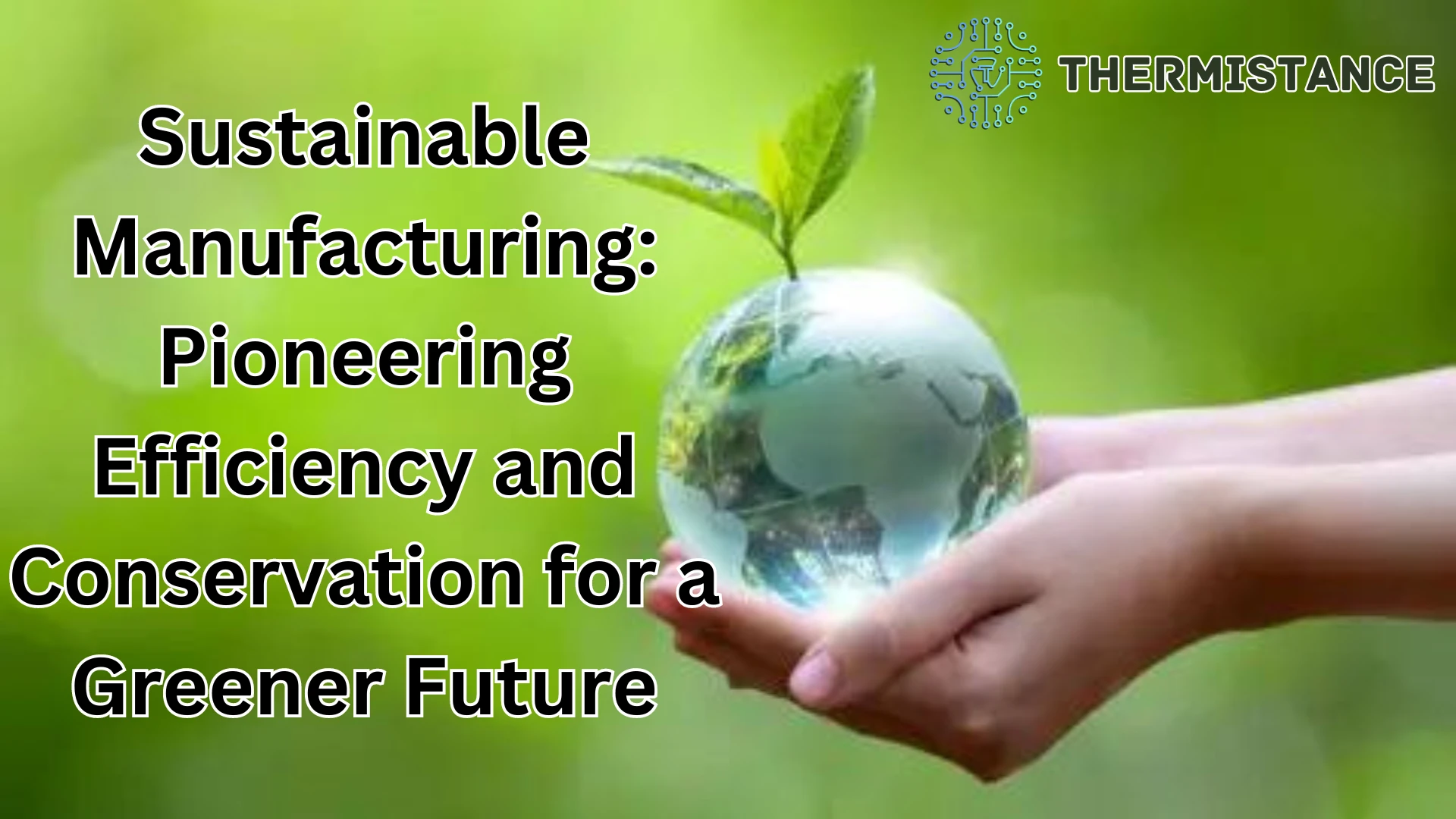Sustainable Manufacturing: Pioneering Efficiency and Conservation for a Greener Future

In the dynamic landscape of modern manufacturing, the quest for efficiency goes hand in hand with the imperative of sustainability. With finite resources and environmental concerns at the forefront, optimizing manufacturing operations for energy efficiency has become paramount. In this blog, we delve into the multifaceted approach towards achieving energy efficiency while valuing scarce resources, embracing renewable energy, leveraging advanced technology, fostering continuous improvement, and cultivating a climate-friendly ethos.
Valuing Scarce Resources:
Manufacturers are increasingly recognizing the importance of valuing and conserving scarce resources. From raw materials to water and energy, every input is precious. Adopting lean manufacturing principles helps eliminate waste and optimize resource utilization. By minimizing material waste and maximizing resource efficiency, companies can reduce costs while simultaneously reducing their environmental footprint.
Embracing Renewable Energy Sources:
Transitioning to renewable energy sources is a cornerstone of sustainable manufacturing. Solar, wind, and hydroelectric power offer clean alternatives to fossil fuels. By harnessing renewable energy, manufacturers can significantly reduce their carbon emissions and dependence on finite resources. Investing in solar panels, wind turbines, and other renewable energy infrastructure not only reduces environmental impact but also provides long-term cost savings and energy security.
Adapting Advanced Technology:
Advanced technologies such as IoT, artificial intelligence, and automation play a pivotal role in optimizing energy efficiency in manufacturing. IoT sensors and data analytics enable real-time monitoring and optimization of energy usage, while AI-driven algorithms optimize production processes for maximum efficiency. Automation reduces energy waste by streamlining operations and minimizing human error. Embracing these technologies not only enhances energy efficiency but also improves productivity and competitiveness.
Fostering Continuous Improvement:
Continuous improvement is fundamental to achieving and maintaining energy efficiency in manufacturing. By regularly assessing processes, identifying inefficiencies, and implementing targeted improvements, companies can drive sustainable gains in energy efficiency over Time. Employee training and engagement programs empower staff to contribute ideas and solutions, fostering a culture of innovation and continuous improvement throughout the organization.
Climate-Friendly Operations:
Manufacturers have a responsibility to operate in a manner that is environmentally sustainable and climate-friendly. This entails reducing greenhouse gas emissions, minimizing waste generation, and adopting environmentally friendly practices at every stage of the production process. From sustainable sourcing and eco-friendly packaging to emissions reduction initiatives and carbon offset programs, there are myriad ways for manufacturers to mitigate their environmental impact and contribute to a healthier planet.
Boosting Productivity with Efficient Resource Allocation:
Optimizing manufacturing operations for energy efficiency does not mean sacrificing productivity. On the contrary, efficient resource allocation and streamlined processes can actually enhance productivity while minimizing resource consumption. Horizontal and vertical integration optimize production rates by ensuring seamless coordination between different stages of the manufacturing process. Proper supply chain logistics further enhance efficiency by minimizing transportation costs and reducing lead Times.
Waste Management:
Effective waste management is critical to achieving energy efficiency and environmental sustainability in manufacturing. By implementing recycling programs, reusing materials, and minimizing waste generation, companies can reduce their environmental footprint while also cutting costs. Adopting circular economy principles encourages the reuse, remanufacturing, and recycling of products and materials, thereby minimizing waste and conserving resources.
In conclusion, optimizing the manufacturing industry for energy-efficient operations requires a holistic approach that encompasses resource conservation, renewable energy adoption, technological innovation, continuous improvement, climate-friendly practices, productivity enhancement, waste management, and efficient supply chain logistics. By embracing these principles and practices, manufacturers can not only achieve desirable growth and profitability but also contribute to a healthier planet for current and future generations. Together, we can pave the way towards a more sustainable and prosperous future.
Written by Dhanjay Gawas Co-founder and COO at Thermistance.